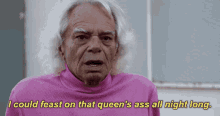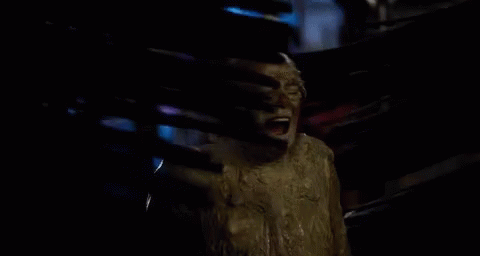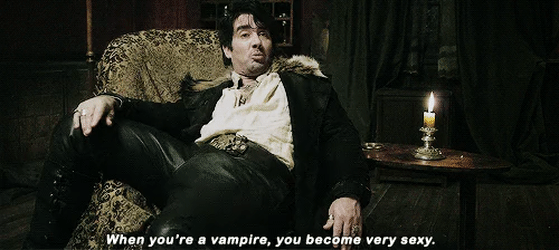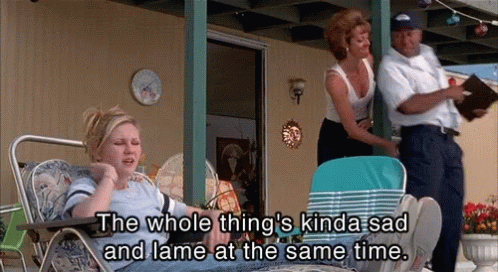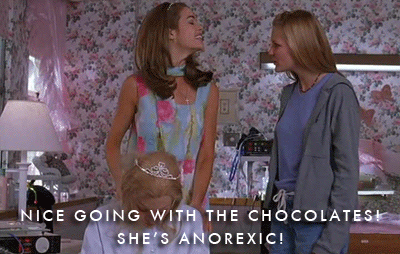
The Hospital - 1971
Directed by Arthur Hiller
Written by Paddy Chayefsky
Starring George C. Scott, Diana Rigg
& Barnard Hughes
feels very real, leaning quite heavily on satire but doing so in a way that makes it easy to believe what you're watching is what would really happen in a modern-day hospital - aside from a certain revelation towards the end of the film when things devolve into a bit of a farcical situation. It's something you'd very much expect from screenwriter Paddy Chayefsky, who won one of his three Oscars for this film (the other two were for writing the screenplays for
Network and
Marty - two really great films.) Chayefsky was very much a dramatist who took inspiration from the lives of ordinary people, or the workings of institutions such as hospitals, the media and scientific entities. His naturalistic style has often given what he writes a veneer of truthfulness and relatability. In
The Hospital we also get a good dose of real medical jargon to complete the picture of being in a real place.
The film begins with some narration from Paddy Chayefsky himself, and he tells us the story of Guernsey, a man who is admitted to hospital with chest pains and who has been misdiagnosed by the nursing home doctor - he has emphysema but they think he has angina, and this mistake is compounded when he's given the wrong treatment which puts him into a coma and then kills him. The doctor who was treating him at the hospital, and helped get things wrong, is now happy, because a bed has been freed, and he has a place to have comfortable sex with a nurse he's been seeing. From the unnecessary death to the callousness of this doctor who sees someone dying as a bonus for his own sexual gratification really made me angry - and the credits roll over a still with the doctor and nurse frolicking in the bed naked, so that anger had an image to help it ruminate and grow. There's an immediate payoff after the credits, and that helps get the main plot rolling...
This doctor, Schaefer, is found dead the next morning by a nurse, still in the same bed he was having sex in the night before - hooked up to an I.V. It seems a nurse came by and thought he was a patient, quietly sedating him and putting a drip in his arm. The hospital's chief of medicine Dr. Herbert Bock (George C. Scott) is called in. Bock is a doctor who is depressed and estranged from his wife, son and daughter - a man contemplating suicide and completely lost. He goes on to meet the daughter of one of the patients in the hospital, Barbara Drummond (Diana Rigg) a free-spirited spiritual searcher who reawakens some lost sexual spark from inside of him, and as such he falls in love with her. Her father is a patient who shares a room with the bed Guernsey was assigned to, and is another victim of medical malpractice - but the doctor who initially treated him has been found in the Emergency Department, dead of a heart attack. As further operations are botched and a nurse dies, we see that someone is roaming the hospital corridors interfering and playing a hand in these events.
So, obviously what happens in this film isn't completely down to bureaucratic bungling and medical malpractice - although I would have liked it even more if it had of been. The film does really try to have it's cake and eat it too however, for when we learn of who is responsible we also find out that this person allowed their victims the chance of being saved if the hospital was working as it should be. The 'killer roaming the corridors' part of the film is a slight intrusion into that whole reality-infused atmosphere I enjoyed so much in this film - an atmosphere which still manages to be maintained for the most part. Barbara's father, played by Barnard Hughes, has copped the brunt of mismanagement by coming in healthy for a check-up, being persuaded to undergo an unnecessary procedure, and ending up in a coma - and the irony isn't lost on Dr. Bock. One of the doctors who operated on him, Welbeck (Richard Dysart) did so while under the influence, and for that Bock wants him put in front of an investigative committee. The killer lurking the hospital corridors might make it so that doesn't need to happen at all.
George C. Scott is great in this - a powerful presence who still manages to convince us of the turmoil that is going on inside of him. Scott was nominated for an Oscar for this performance, following on from the one he won the previous year for his role in
Patton (and which he refused to accept - returning the statuette to the Academy.) He's absolutely believable, and manages to maintain the kind of distance most doctors, who believe themselves to be superior to the rest, try to maintain from other people - but at the same time he needs real intimate contact so badly that the walls tremble and shake. Under pressure as Head of Medicine in a hospital that seems to be falling apart gives him a permanent scowl, stiff body movements and overly officious bearing which Diana Rigg needs to break down. Scott steals all of our attention in this, and it's his Dr. Bock that will remain after all the other characters in the film have faded as time goes by after seeing
The Hospital.
The film was directed by Arthur Hiller, one of those directors who made all manner of films in differing genres and styles - but mainly leaned towards straight comedy in the latter half of his career. I saw
The In-Laws for the first time not so long ago and loved that, and have always had a soft spot for
Silver Streak. He was nominated for an Oscar only the one time, after directing
Love Story, which was released in 1970 - a film that has been derided by many for it's soppiness, and that's the reason I've yet to see it. He returned to the pairing of Gene Wilder and Richard Pryor, helming
See No Evil, Hear No Evil, but this time much of the magic had long departed, and all parties were following a much doctored script with few laughs in it. Like George C. Scott, he was going through a great period here after his Oscar nomination and a hit film. He seems to have directed a few Neil Simon films and mainly stuck to comedies, but this film has a much different tone to much of that work, being serious satire with sociological comments. He had an ability to adapt himself to what screenplays wanted, but ended on a sad note, directing quite a few films that were far beneath him at the end of his career.
The film has virtually no score (just music for it's opening and closing credits) and it's director of photography was Victor J. Kemper, who was a very frequent Arthur Hiller collaborator. Kemper's most famous work was done on
Dog Day Afternoon, and he was also cinematographer on
Clue,
And Justice For All and
National Lampoon's Vacation. Filming was done in a newly built psychiatric wing of the real Metropolitan Hospital in New York - completing that completely real feel the film has - a rare chance to film in a location that completely corresponds to what the film is trying to be without dislocating or interrupting real doctors and patients. Added to the realistic dialogue, performances and look of the cast it paints a very believable portrait of a bustling hospital in a busy city. That reality is impinged on slightly when we find out what is really going on, but by then the film is nearly over anyway. I'm not sure how popular it was in it's day, but it did receive positive reviews from the critics. It's a film I had never heard of before encountering it.
It's a wryly clever comedy, but not the kind of movie that has you in stitches due to comedic things happening, but more in a sense of "that'd be right" condemnation of real bureaucracies and medical establishments. I may have had a laugh here and there, but for the most part it's actually quite a serious film - even more serious than many films that
aren't comedies. But due to it's satirical nature it definitely is a comedy - just one of a different sort. As Dr. Bock continually notes that people are coming to a place that is meant to heal them and for the most part they get more sick or even die when they do. One has to note though, that this isn't a blanket repudiation thrown over all doctors and hospitals and the work they do - saving lives and actually healing people. It's more a case of how wrong-headed they seem when you get caught up in the way they're managed - with nurses and doctors holed up in meetings, filling out forms and walking around while only spending a small percentage of their time examining patients and making a diagnosis.
There's a whole other segment of the film dealing with a tenement that is about to be demolished to make way for a new wing of the hospital, with residents protesting about being evicted and a Dr. Sundstrom (Stephen Elliott) dealing with the fallout. This basically has no impact on the rest of the plot so it seems to me to be something really extraneous to the whole story and an uninteresting sideshow to everything else that is going on - nothing too dramatic happens, nothing is resolved except for Dr. Sundstrom deciding to quit (and changing his mind around 90 seconds later.) This all reminded me a whole lot of Lindsay Anderson film
Britannia Hospital, which came out in 1982 - a film that also had sociological problems in it's sights, but one that fell short despite being exceedingly weird with an interesting cast. It was as weird as
The Hospital is serious and real. But both films featured a mob and riot that amounts to very little in the end. It always comes down to characters, and where they end up.
I thought that perhaps Dr. Bock fell in love with Barbara a little suddenly, but perhaps we can put that down to her curing his impotency and alleviating his depression - and the fact that this is a film and even though it's a very grounded one it doesn't have to be dictated to by what usually happens. The morning after, she's trying to get him to leave the hospital and follow her and her father into the Mexican wilderness - despite the fact they've known each other for only a few hours. This creates something of a love triangle featuring Barbara, Dr. Bock and the hospital itself. Dr. Bock's sense of duty is strong, but he's also fed up with how dysfunctional everything is - and it's this dysfunction (not only in the hospital, but everywhere) that fed his depression. He's a good man, and if he leaves it will only drain more good sense from an already unstable institution - but if that same institution is poisoning him then it would make sense to leave it all behind before it really does kill him. It's an interesting dilemma to have for such a well-written character that is being performed so well. (The Oscar went to Gene Hackman for his performance in
The French Connection in the end.)
Overall, I thought this was a really good film, although there has been a slight deduction made due to it's sudden (kind of crazy) change in tone and superfluous 'protest' segment (it captures and says something sociologically, but doesn't impact our plot - it kind of just hangs out there.) I just really enjoyed the show put on by George C. Scott a whole lot, and especially loved the parts of Chayefsky's screenplay that really delved deep into the irony that many health systems have built into them in a very realistic way. The whole "he came here to be healthier and now he's in a coma" aspect to a dysfunctional hospital, with unnecessary procedures being pushed on patients so specialists can make more money, is something I see a lot of these days. People get swept up into "care plans" that send you to physiotherapists, psychologists, therapists, acupuncture...etc etc so these people can make a lot of money and their industry can employ more and make money - when you have no really big issue for the physiotherapist to take care of, or no real emotional urgency for a psychologist to unravel, nothing much wrong, but you get referred anyway. In the meantime, the poor unprofitable kid with sepsis has to wait. No beds. No doctors. In over 50 years, not much has changed.


